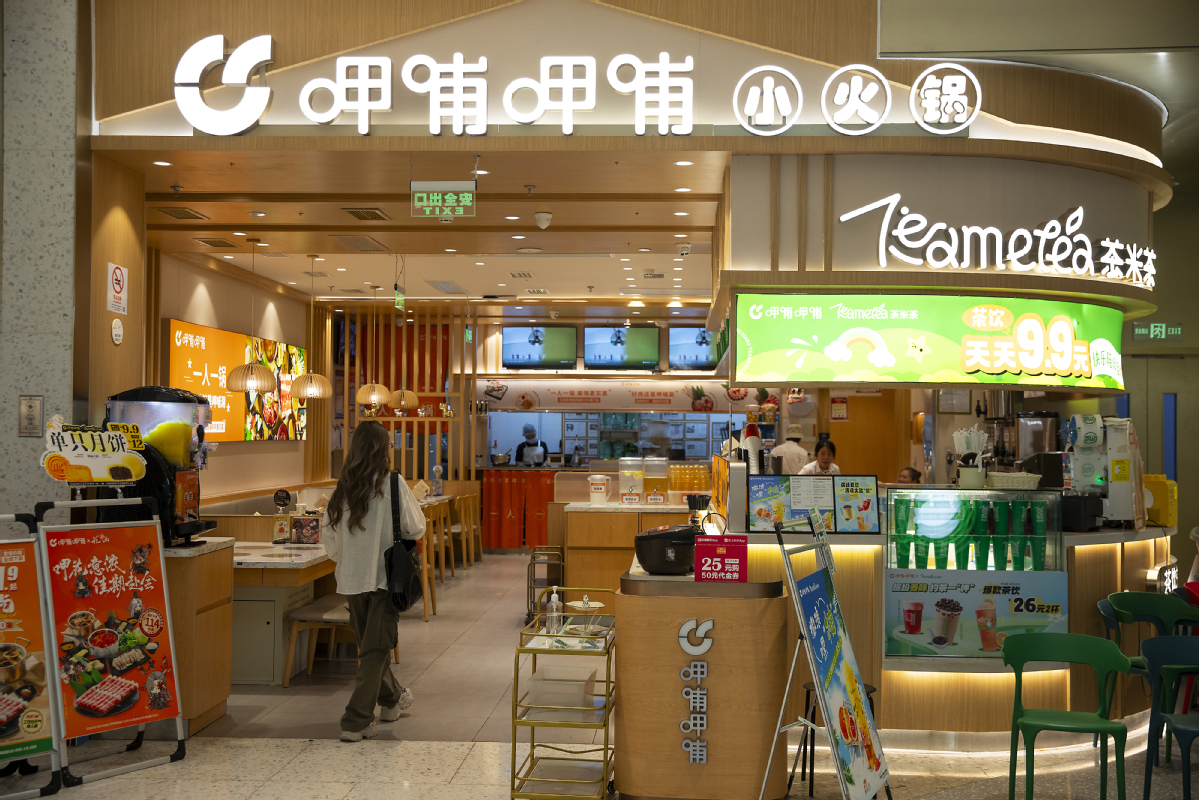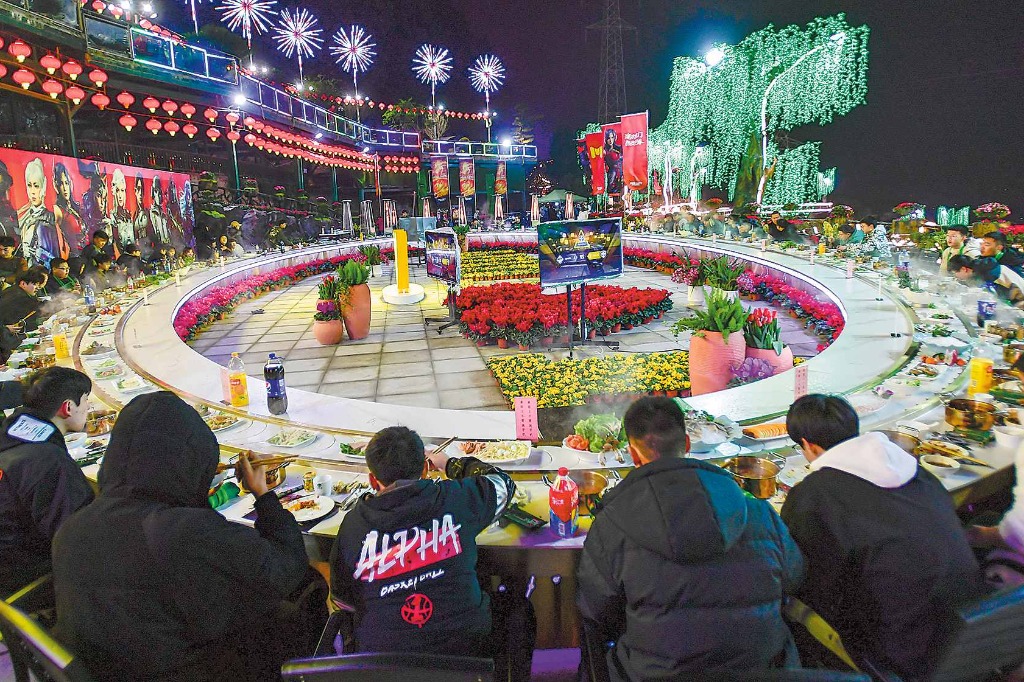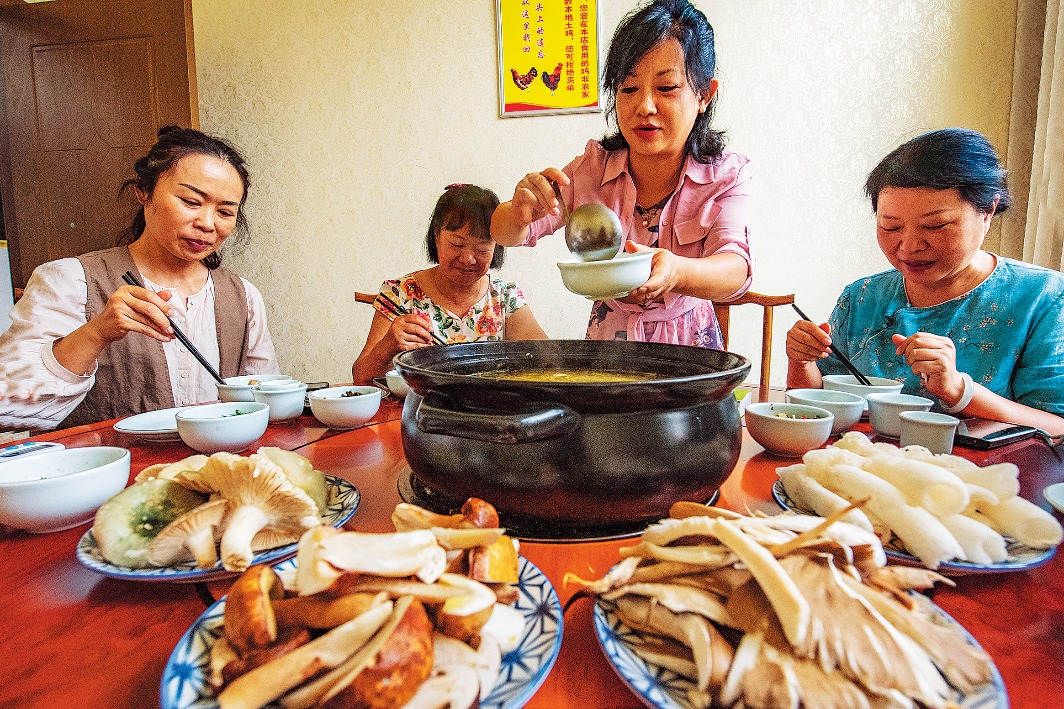Caterers urged to go digital to cut costs, hike efficiency, drive development


Digitalization is key to improving efficiency and reducing costs for China's catering industry, as well as driving its high-quality development, amid a period of rising revenue but declining profits, said business leaders and experts at a conference held recently in Shanghai.
According to data from the National Bureau of Statistics, China's catering sector recorded a total revenue of 3.06 trillion yuan ($429.8 billion) from January to July, up 7.1 percent year-on-year. However, the latest half-yearly earning reports released by several leading catering companies, including hotpot chain Xiapuxiapu and Japanese-style noodle chain Ajisen (China) Holdings, show a fall in profits.
Despite the challenges, business leaders and experts present at the Meituan Catering Industry Conference on Sept 3 were still positive about the future prospects of China's catering industry, fixing their eyes on digitalization.
"Catering is an industry that has long-term resilience, but it requires changes to keep thriving. We are witnessing transformation that we have never seen in the past three decades, making us go deeper into the industry for long-term development," said Wang Puzhong, CEO of the core local commerce business at Meituan, a leading food delivery company and popular on-demand service platform in China.
Wang pointed out that people's demand for catering services is constant.
Meituan's data show that the demand for catering among people living in Chinese towns will continue to expand. By the end of 2030, each person in a town is expected to eat out five to six times per week.
On the digitalization of China's catering sector, food delivery platforms now form a critical part of people's daily life.
An increasing number of consumers are seeking out restaurants, ordering, eating and providing reviews on online platforms.
According to the company, 275 million consumers use Meituan for catering every week, making it a crucial battlefield for catering brands to expand both online and offline.
While it can be expensive to open an offline restaurant chain with dine-in services, cost-effective "satellite restaurants" have mushroomed on online platforms.
Basically, a satellite restaurant refers to a small shop affiliated to chain brands that specializes in food delivery services.
With much lower operational costs, these restaurants still boast the advantage of guaranteed food products and services, which have made them popular on online platforms.
To date, a total of 150 catering brands have launched over 1,000 satellite restaurants on platforms, according to Meituan.
In addition to making full use of online platforms, digitalization is also in the spotlight for operations and management in catering companies, especially among big brands like coffee chain Luckin Coffee.
Established in 2017, Luckin Coffee has seen rapid expansion and has over 20,000 stores across China, recording a profit exceeding 3 billion yuan last year.
"Our business model is actually quite simple. We take digital technologies as the foundation, and integrate our people, brand, product development, supply chain management and business operations on it. Some people would describe us as a digitalized company or a technology company, but I would say Luckin Coffee is simply a catering company with digitalization as the base since our establishment," said Guo Jinyi, chairman and CEO of Luckin Coffee, during the conference.
Guo added that consumers do not care about the digitalization or technologies behind a cup of coffee, but they care about a smooth process in ordering and delivery, a good service experience and product quality, as well as cost-effectiveness.
"Digital technologies have helped us to promote service and consumer experience, reduce costs and improve efficiency," said Guo.




































